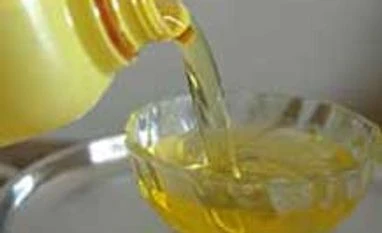Edible oil imports could break a record to touch 11 million tonnes (mt) this year, on rising demand from middle class following sustained pressure on prices.
According to Dorab Mistry, director of Godrej International, the imports are set to rise four per cent. Those were 10.7 mt a year ago.
This, however, is not likely to hit domestic production. This is despite the fact that crushing remains unviable due to the sustained increase in the minimum support price. In the oil year 2013-14 (November-October), domestic production is estimated to rise to 7.7 mt compared to 7 mt a year ago.
The ongoing winter-sowing season started on a positive note with an increase in sowing area, due to good monsoon. Data compiled by the ministry of agriculture showed India's total winter-oilseeds sowing area rose 4.2 per cent year-on-year to eight million hectares as on December 19, due to higher sowing area under rapeseed and mustard. The total area under winter oilseeds was 7.63 million ha a year ago.
Rapeseed and mustard sowing area rose six per cent to 6.7 million hectares as on December 19 from 6.4 million a year ago. Area in Rajasthan, the largest producing region in India, increased nine per cent to three million. The momentum is likely to continue resulting in higher production. But, an inverted duty structure with a higher import tax on crude oil than refined (refined, bleached and diodised or RBD) has hit refineries.
The government had cut the import tariff value on crude and refined oil three per cent to keep edible oil cheaper, fearing a further rise in food inflation.
While the import tariff value has been cut $29 to $929 on RBD palmolein; for CPO, it was cut to $892 a tonne effective January 1 from $912 a tonne a fortnight ago.
According to Dorab Mistry, director of Godrej International, the imports are set to rise four per cent. Those were 10.7 mt a year ago.
This, however, is not likely to hit domestic production. This is despite the fact that crushing remains unviable due to the sustained increase in the minimum support price. In the oil year 2013-14 (November-October), domestic production is estimated to rise to 7.7 mt compared to 7 mt a year ago.
The ongoing winter-sowing season started on a positive note with an increase in sowing area, due to good monsoon. Data compiled by the ministry of agriculture showed India's total winter-oilseeds sowing area rose 4.2 per cent year-on-year to eight million hectares as on December 19, due to higher sowing area under rapeseed and mustard. The total area under winter oilseeds was 7.63 million ha a year ago.
Rapeseed and mustard sowing area rose six per cent to 6.7 million hectares as on December 19 from 6.4 million a year ago. Area in Rajasthan, the largest producing region in India, increased nine per cent to three million. The momentum is likely to continue resulting in higher production. But, an inverted duty structure with a higher import tax on crude oil than refined (refined, bleached and diodised or RBD) has hit refineries.
The government had cut the import tariff value on crude and refined oil three per cent to keep edible oil cheaper, fearing a further rise in food inflation.
While the import tariff value has been cut $29 to $929 on RBD palmolein; for CPO, it was cut to $892 a tonne effective January 1 from $912 a tonne a fortnight ago.
)